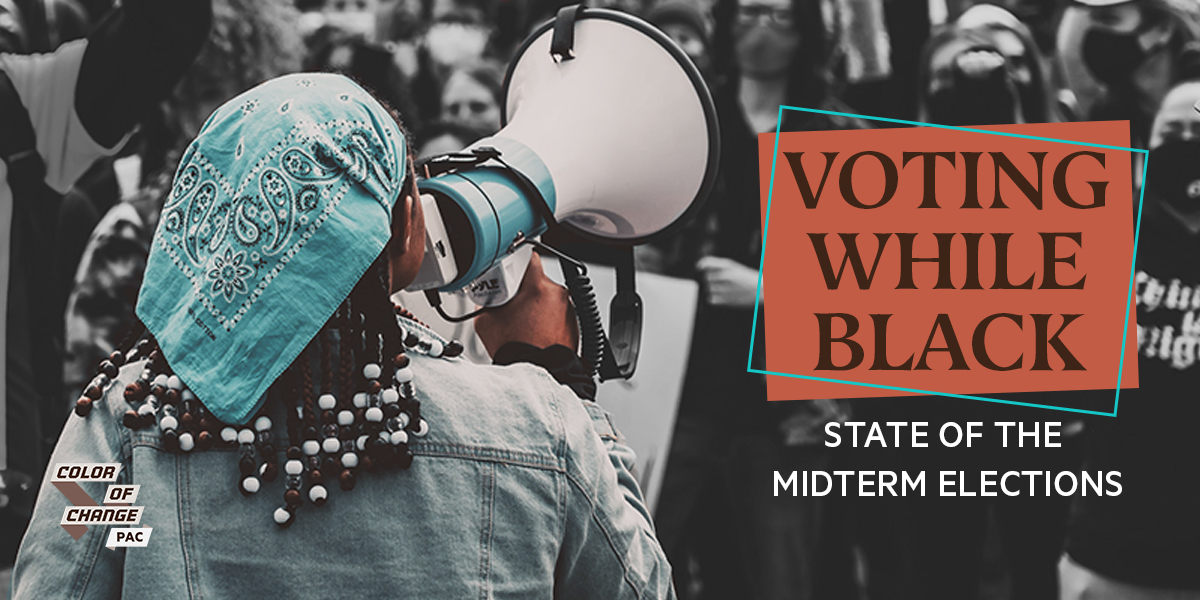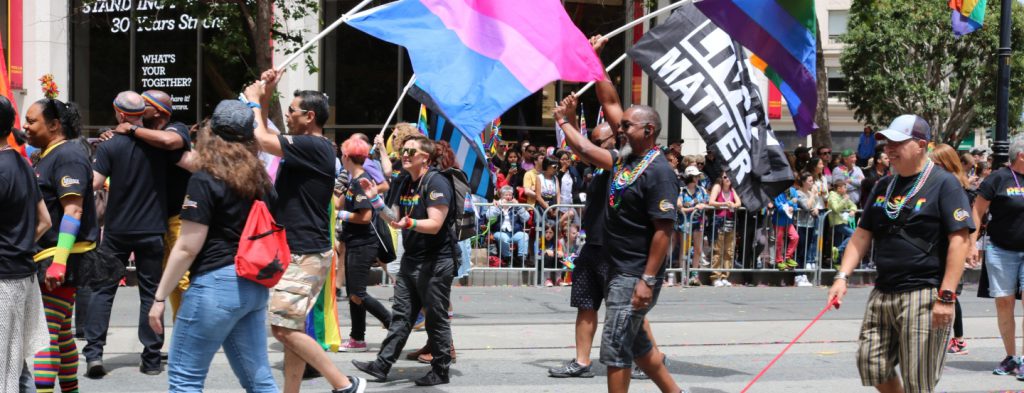
October 2022
Turning anger into power at the ballot box: COC PAC offers pathway to take action
By Aldore Collier

Millions of Black Americans are outraged over the U.S. Supreme Court striking down Roe v. Wade after nearly 50 years of protecting abortion rights and women’s health care freedom. They also are mad about inaction on issues that disproportionately impact our communities — health care, voting rights, economic instability and criminal justice.
As the midterm elections loom, the major challenge is channeling anger and outrage into a vehicle for political action. Color Of Change Political Action Committee, the electoral arm of the nation’s largest online racial justice organization, is giving members an electoral pathway to take action against injustice. COC PAC is using a host of resources to transform that outrage over Roe and other issues into action at the ballot box.
COC PAC has endorsed 27 candidates — the largest number yet for the political action committee during the midterms – in races in seven states. COC PAC is mobilizing hundreds of thousands of voters in those areas with critical, contested races through a range of efforts.
The races run the gamut, from the highly salient gubernatorial race in Georgia to congressional races in several states and less visible, down-ballot races such as district attorney races in Florida and Minnesota.
“Black people are facing higher grocery bills due to inflation and are having to choose between paying the gas bill or buying dinner,” said Shannon Talbert, senior director of Color Of Change PAC. “Our community doesn’t get the luxury of sitting out for (an election) cycle because our very livelihood is challenged daily.
“Black women consistently show up, drive friends and family to the polls and go through ballots with their family and neighbors. Taking action is not separate from community building. It is woven into the fabric of our community,” she continued.
“These issues are not just a box with an ‘X’. The issues on the ballot will shape our day-to-day experiences, which is why we have a multi-layered approach to talk to high potential voters,” Talbert said.
“Up and down the ballot, we have to turn out to vote for the candidates who will be accountable to our community. We deserve elected officials who are going to represent and fight for the issues that we care about,” she said.
What’s at stake this year is not only health care protections for women, but electing candidates who will help protect voting rights and hold police and corporations accountable.
Talbert’s colleague, Drew Daniels, agrees. Daniels, head of Color Of Change PAC’s digital division, said it’s “all hands on deck” for this election cycle.
“We’re broadcasting out millions of text messages, running digital ads on new platforms and launching direct mailing campaigns, building Black voters’ confidence,” he said.
The extreme urgency is the tightly contested races for the U.S. Senate, where Democrats are working to hold on to — or expand — their current slim majority.
“All states are pivotal to us, but North Carolina is really heating up,” Talbert said. There, Democrat Cheri Beasley, former chief justice of the North Carolina Supreme Court, is within striking distance of winning a U.S. Senate seat in a race against three-term Republican Congressman Ted Budd.
“We’ve directed all of our volunteer call capacity toward North Carolina where Cheri Beasley is neck-and-neck in the polls,” Talbert said.
COC PAC also is concentrating efforts on races in Georgia, Minnesota and Michigan.
Talbert said a major focus is on Black people who rarely vote in non-presidential elections.
“Our program is focused on ensuring that the people who are never contacted by Democratic campaigns, who are considered unreliable voters, get the most information because these are the issues that impact their lives most directly on a day-to-day basis,” she said.
“We’re there as a resource to ensure that our folks have the information to vote with confidence, to invite them into community with us and to value them as a whole person,” Talbert continued.
“Additionally, we’re going to be there even after the election to engage deeper and strategize with our voters to hold candidates accountable to our community.”
Realizing that Black men voted for former President Donald Trump in greater-than-anticipated numbers during the 2020 presidential election, COC PAC has devised a Black men’s program that calls for volunteers to engage in voter outreach, including going to barbershops and attending community events that might appeal to Black men, Daniels said.
Because of concerns about COVID-19, which lingers throughout U.S. communities, COC PAC also is using phone calls and text messaging to reach voters rather than a lot of in-person events.
“There’s still a bit of timidity because of COVID,” Talbert said. “We’re focusing on calls so that we can have longer conversations” with potential voters.
COC PAC is hosting volunteer-led text-a-thons where COC PAC members text Black voters in key cities to get out the vote.
“We’re engaging our members across the country and asking them to participate in races that will have an impact on all Black people. Electing another Democratic senator will impact all of our lives and increase the Democratic majority. So we’re providing members in California, New York, D.C. and anywhere around the country with the opportunity to make calls into North Carolina,” Talbert said.
The effort has been successful. “Thus far, we’ve had 124 volunteers participate in the program,” Talbert said.
Still, because there’s so much misinformation and disinformation during this election cycle, Daniels said, “Visual techniques are being used to spread the message, as well as phone calls. I am part of a team that comes up with visuals to tell stories, to get Black people to click, update their voting status and donate” to support COC PAC’s crucial GOTV efforts.
Beyond asking for donations, the PAC also does targeted ad buys in pivotal districts and works with social media influencers to get out the vote and support endorsed candidates, Daniels said.
Talbert’s biggest fear this election cycle is voter apathy.
“We focus on the ‘You can make a difference’ angle, giving folks hope and an opportunity to participate,” she said.